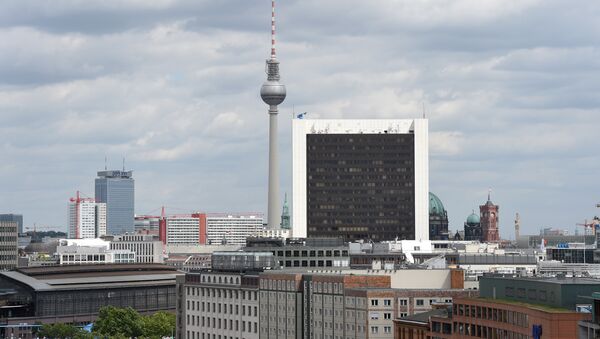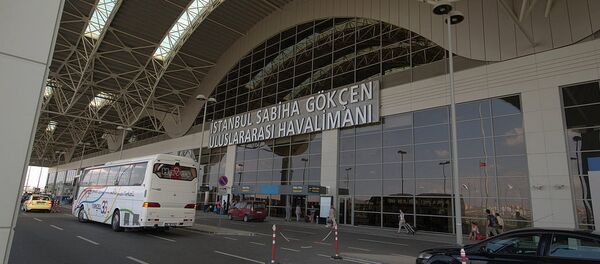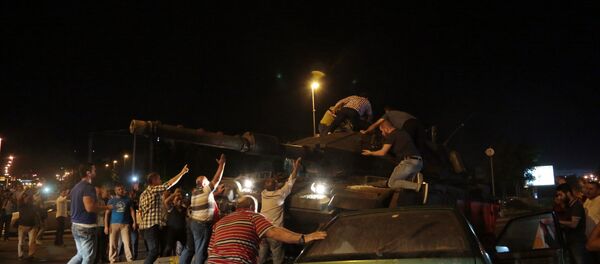On Saturday night, around 3,000 demonstrators protested the coup attempt in Berlin alone waving Turkish flags in front of the Turkish embassy until the early morning.
"It is not about politics, it is about the country," said an activist, cited by the newspaper. "But it is now under control."
After the demonstrators heard the news, they gradually started to leave the rally. However, the number of such demonstrations in Germany in itself raised security concerns within the country.
Experts in the field of security told German newspaper Deutsche Wirtschafts Nachrichten that such a high level of mobilization could become a serious problem for Germany, especially given the fact that German authorities do not have sufficient information about the organizational structure of these protests organized by Turks.
"Especially with regard to domestic tensions — such as between Turks and Kurds in Turkey — there is a danger that violent clashes could also take place on German soil," the media source wrote.
Large demonstrations were also registered in Bremen, München, Hannover, Stuttgart and several smaller cities in the federal state of North Rhine-Westphalia. The rallies also took place in other European cities, for instance in Vienna where around 4,000 Turks gathered to protest the coup.
Following the coup, Turkish President Recep Tayyip Erdogan announced that the country's authorities are not ruling out bringing back the death penalty for participants of the thwarted military coup in the country.




